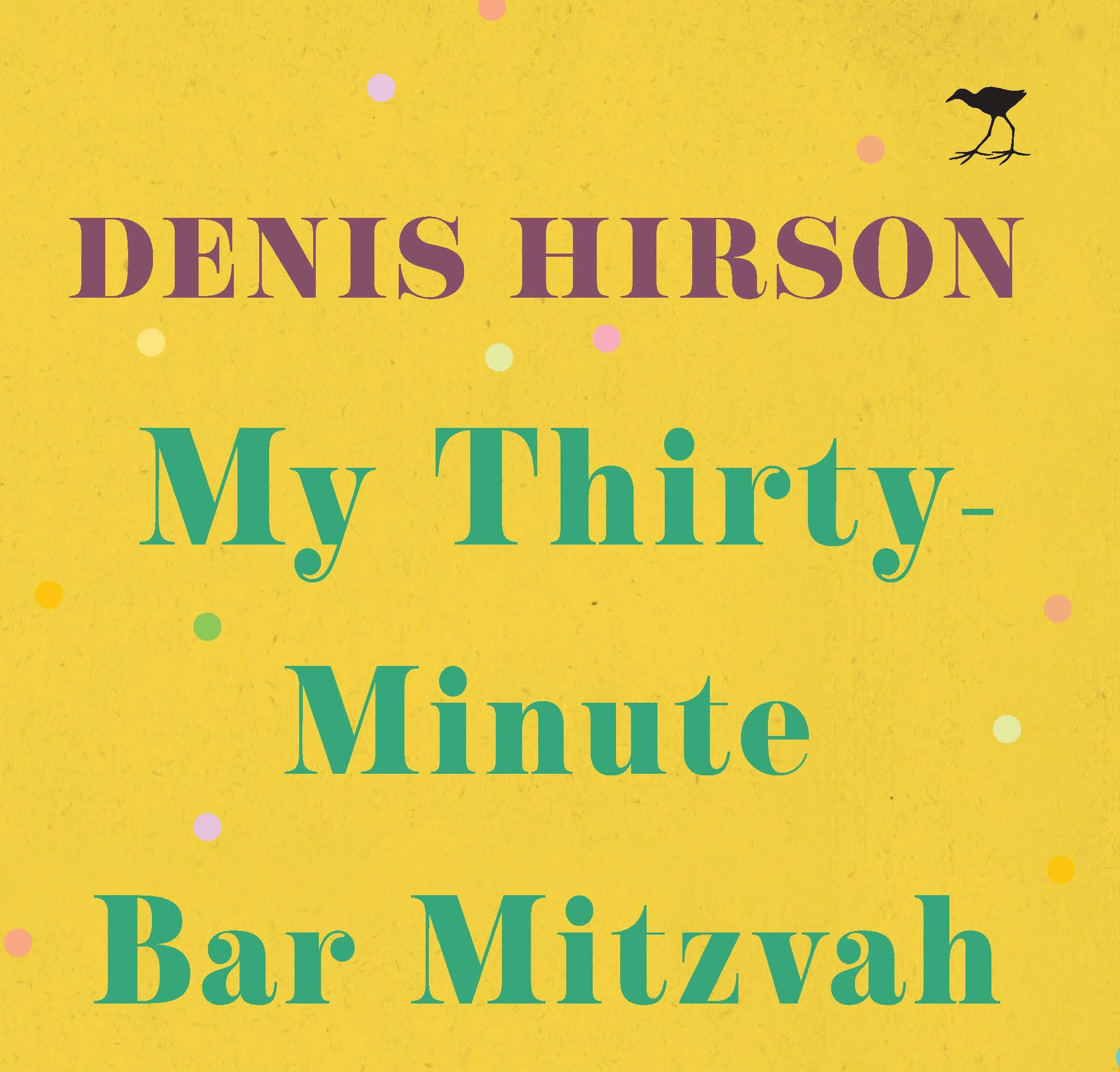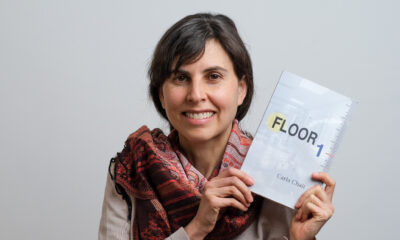
Reviews

‘My Thirty-Minute Bar Mitzvah’ packs a punch
“I couldn’t have written this book while my father was alive,” Denis Hirson told an audience gathered in Joburg recently for the launch of his novel, My Thirty-Minute Bar Mitzvah.
That’s not surprising, because the book is as angry as it is moving.
Hirson’s father, Baruch Hirson, was an anti-apartheid activist, academic, author, and historian. He was convicted of sabotage and jailed for nine years in 1964, being arrested shortly before Hirson’s 13th birthday. He was released in 1973 when Hirson was an adult. His two younger siblings grew up without their father.
Hirson’s book is a powerful account of the experience of the child of activists. For most of the book, he writes from his 13-year-old perspective, alternatively dumbfounded and dumbed down by his father’s disappearance from his life. For the rest, he writes from the perspective of an adult and a father himself, with greater understanding, forgiveness, and grief.
Every word in the book is carefully chosen, creating a beautiful work that packs a punch. There’s outrage in almost every line, and a silent withholding of emotion. The reader gets the sense that in writing the book, Hirson is releasing emotional baggage held for most of his life.
On hearing of his father’s arrest, Hirson writes, “My mind was being laid out horizontally in my head and anaesthetised, as when I’d had a hernia operation a few years earlier. ‘Blow into the orange balloon,’ the doctor had said, and then slowly I went sinking down.”
He talks about how he couldn’t talk about this atom-bomb event in his life to his schoolfriends or even his mother. “We sat there at arm’s length on the settee and silence fell between us, filled with my father’s absence. We had no idea how to speak to each other, not even to ask how the other was feeling … My mother and I were also balancing on a piece of string, one end tied to our house and the other to a prison called the Old Fort in the middle of Johannesburg.”
The subject of having – or not having – a Barmitzvah, pervades the book, and Hirson writes amusingly about the pressure from the community on a young boy whose parents didn’t identify strongly with Judaism – from his grandmother to community rabbis, and the anxiety it engendered in him. “Back in South Africa,” he writes, “when I was with Jewish friends, it seemed that I was not Jewish enough, because unlike my family they were always doing something about it, like not eating bacon, or going to shul. I did not know what to do about it.”
In the end, his Barmitzvah is a true rite of passage, toppling his father from omniscient in his life to someone frail and disempowered. “Of course that was my father, but with a smile on his face that was not a smile, sitting but not as he usually sat, in a manner that was crumpled and in a place that was not his. Since when did he occupy the back seat of a car?”
Ultimately, Hirson reflects as an adult who has travelled to Paris – as far away from the leafy streets of Joburg as he could get – on the Batmitzvah passage of his daughter, the story of Abraham’s sacrifice, which concerns a father being willing to sacrifice his son, and his anger with his father.
He writes, of Isaac, after his last-minute amnesty from G-d, “We are told nothing more of the boy, whether or not he is still motionlessly bound up while the torch of fire goes on burning at his side. Does he dwell upon what just happened, has his mind gone entirely numb, or do his thoughts bear him as far away from his father and the altar as possible?”
My Thirty-Minute Bar Mitzvah is full of broken, stoic people, including Hirson’s Grandpa Joe and Granny Lily, who left Latvia to live in Jeppe, only to re-experience “guns and blood” on the street in miners’ and workers’ strikes in a fight that wasn’t their world, and who, by the time Hirson is around, just keep on keeping on, just as he had to do after his father disappeared from his life.
The characters in his life are as vividly and lovingly depicted as Joburg suburbia in the sixties, which was full of comfort and contradictions. Hirson is as cutting about his teachers, who willingly took part in the school apartheid propaganda machine as he is about the “darkness” of recently released fellow political prisoners, who flitted through his house after his father’s arrest.
“Everything about him irritated me, from the clearly relieved expression on his face to the bad cut of his trousers and the way he sat there munching Romany Creams,” he writes of one of these shadowy visitors. “What was this man doing in his place? When was he going to stop speaking and smiling and bringing my father’s absence so impossibly close?”
My Thirty-Minute Barmitzvah is a gem of a book about becoming a man. It’s also a valuable account of a forgotten time of white, Jewish activists, their families, their community, and most importantly, their children, who had to stumble through life in the aftermath of their commitment.










